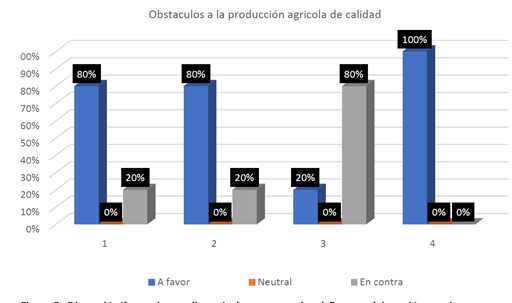Culture of Agricultural Soil Quality Monitoring in the North Center of the State of Sinaloa. Sustainable Perspective and Importance from Local Laboratories
DOI:
https://doi.org/10.28940/terralatinoamericana.v43i.2043Keywords:
agriculture, technical assistance, environmental governance, conventional practicesAbstract
The opinions of soil laboratory technicians in the north-central region of the state of Sinaloa were analyzed in an attempt to understand the culture and importance of agricultural practice in this highly agricultural region. The starting point is that this group of specialists believe that the monitoring of soils used for agricultural purposes has not been an issue addressed by producers, impacting the sector’s sustainable outcomes.
Using a quantitative cross-sectional descriptive methodology and a 20-item Likert-type survey as a collection technique, topics such as traditional agricultural
practices, obstacles to agricultural production, soil quality monitoring, and sustainable
agriculture were addressed. The surveys were conducted with a representative population of 71.43% of the sample, in five agricultural soil laboratories, out of a total of seven, located in three municipalities in the proposed area: Guasave, Juan Jose Rios, and Ahome. Our results show evidence that the monitoring of soil quality is a topic understudied by researchers and scarcely applied by farmers. Furthermore, current actions are insuf ficient to achieve significant changes, and specialized technical assistance is lacking. While some young producers engage in this practice, conventional approaches prevail, hindering the sector’s sustainable development.
Changes in sector governance are needed to promote awareness and action: training, technical assistance, and agronomic advice; promoting the design and implementation of public policies and programs that facilitate sustainable, resilient, and corrective agronomic practices that aid long-term soil regeneration; and seek to establish agreements and networks between sector governance and private initiatives (laboratories and universities) that support agricultural producers in this important monitoring activity.
One limitation to this research was the reluctance of laboratory technicians or laboratory managers to respond to surveys.
Downloads
Publication Facts
Reviewer profiles N/A
Author statements
- Academic society
- Terra Latinoamericana
- Publisher
- Mexican Society of Soil Science, C.A.

















